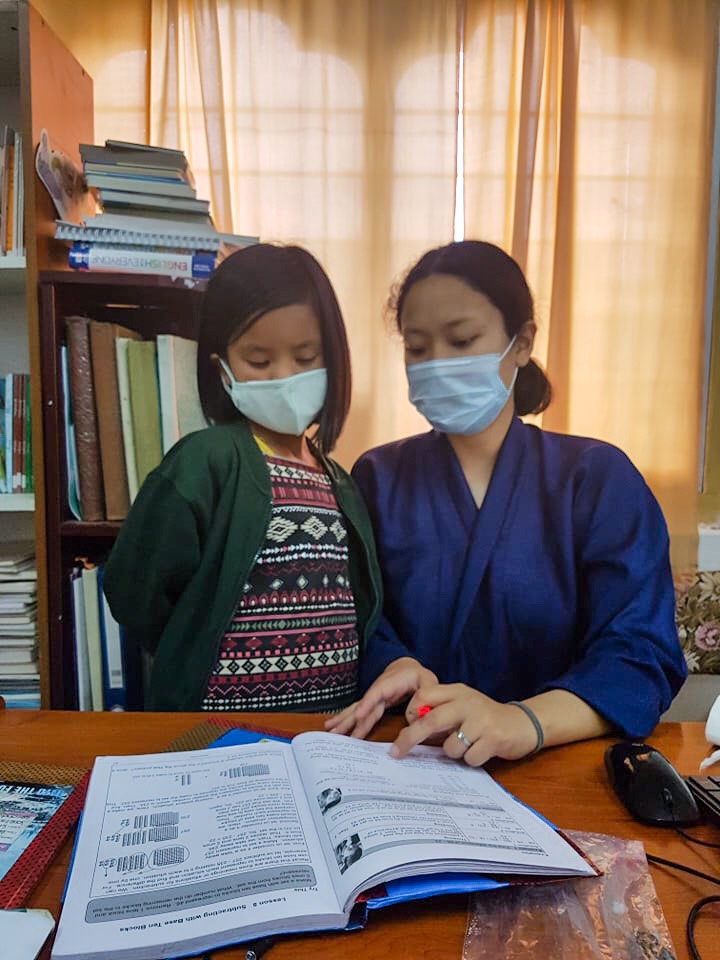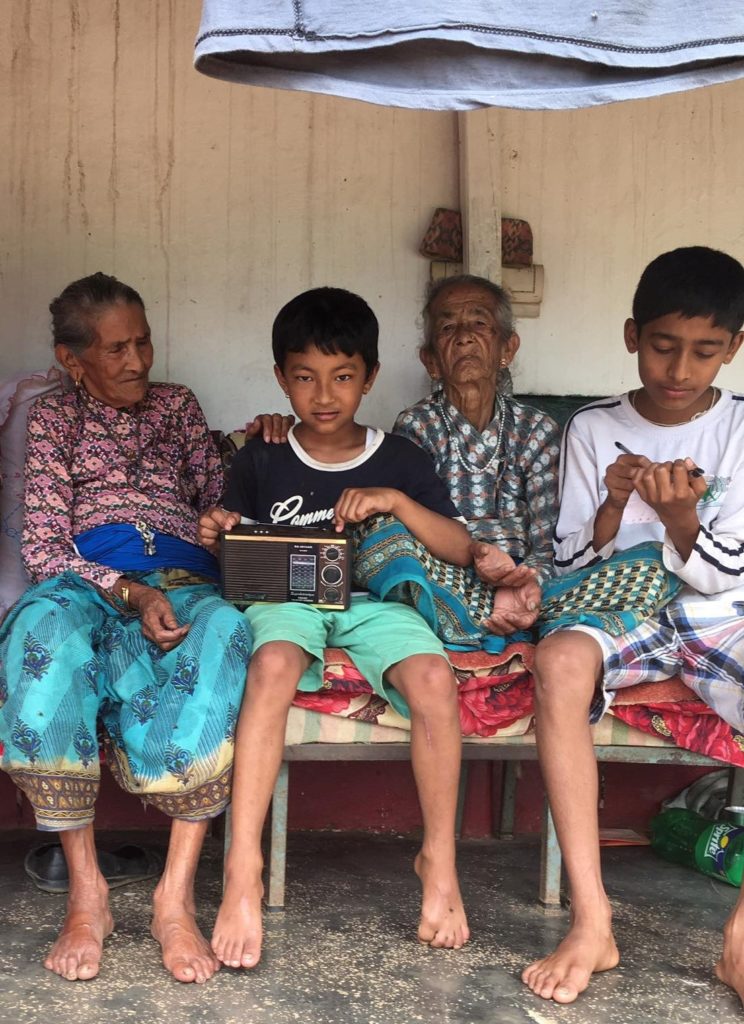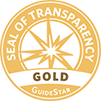READ Centers play a pivotal role during a crisis, providing disaster response and relief during emergencies, and promoting equity during recovery. Our READ Bhutan, READ India, and READ Nepal teams have been invaluable to READ communities over the past several months, supporting families as they deal with COVID and its effects and empowering individuals to pursue the education, training, and economic opportunities they need most. In South Asia, COVID-19 cases spiked in May with the emergence of the new Delta variant which then spread across the globe. In the face of this new wave, READ Centers have been serving as crisis response platforms, maximizing resources available to Centers so they can meet their communities’ evolving needs.
In Nepal, READ Centers have provided relief to roughly 3,400 beneficiaries across over 600 households in the recent COVID-19 surge. In Bhutan, where schools have been able to reopen, READ Bhutan has partnered with teachers to provide engaging weekly literacy catch-up sessions for 1,340 students. Centers in all three countries work to ensure people have the most up-to-date information about where to receive treatments and vaccinations. As lockdowns begin to lift, Centers are also once again turning their focus to an equitable recovery.

We’re continually inspired by the resilience and persistence of the READ Centers and the communities they serve. The stories about how they’re coping with the pandemic and its effects and responses, staying safe, and keeping their children learning are a powerful reminder of the impact of our work.
Overcoming a Year of Missed Schooling in Bhutan
 Bhutan has escaped the worst of South Asia’s COVID surge, due to its extensive vaccination program. Students are now back in the classroom, but are far behind where they should be in their studies after a year of home education. In fact, an assessment READ Bhutan conducted earlier this year with primary students attending four primary schools in Thimphu, found that 70% of students were performing below their target reading level.
Bhutan has escaped the worst of South Asia’s COVID surge, due to its extensive vaccination program. Students are now back in the classroom, but are far behind where they should be in their studies after a year of home education. In fact, an assessment READ Bhutan conducted earlier this year with primary students attending four primary schools in Thimphu, found that 70% of students were performing below their target reading level.
In response to this challenge, the READ Bhutan Center in Thimphu has ramped up its after-school tutoring program to help kids catch up and thrive, supporting children with reading, math, and other lessons, as well as general support to help them complete homework.
Tenzin is one of the many students who is catching up. She attends evening and weekend tutorial sessions at her READ Center to get help with homework and reading recovery tutoring. She is one of dozens of young students who say the program has helped her greatly, enabling her to complete her homework on time.
Staying Informed with Community Radio in Nepal
 In the Syangja region of Nepal, Community Radio Syangja FM, which is managed by the Laxmi Memorial Community Library & READ Center, has played a crucial role in supporting the COVID-19 response and helping people make safe, informed decisions. This station brings agriculture, education, health, news, and entertainment content to over 300,000 people daily.
In the Syangja region of Nepal, Community Radio Syangja FM, which is managed by the Laxmi Memorial Community Library & READ Center, has played a crucial role in supporting the COVID-19 response and helping people make safe, informed decisions. This station brings agriculture, education, health, news, and entertainment content to over 300,000 people daily.
Some elders there cannot read, and for many of them, they only learned about the government’s vaccination campaign thanks to these radio programs. Since the pandemic began, Syangja FM has also provided essential COVID-19 information, such as recommended preventative measures and support for school children with the “Radio School” program.
Community members are reaping the benefits. One elderly resident said, “I can’t read or write, I can’t use a mobile. I don’t have options to get information except by radio, and Syangja radio has been my friend in my old age. I used to think everyone would be finished by Coronavirus, that no one can escape from it, but I learned from the radio that we can save our lives if we care properly for ourselves.”
Supporting Marginalized Farmers in Nepal
Many farmers in Nepal are still hurting from the economic impact of COVID lockdowns. The dramatic decrease in employment of daily wage laborers due to shutdowns is impacting families, and many temporary farmers hope to lease land to plant staple crops now to secure their access to food in the future. But now, they face an additional difficulty; COVID has reduced access to the fertilizer they desperately need during the current monsoon planting season to secure next season’s crops. Lacking this fertilizer, they and their families will face food insecurity.
As part of it’s COVID relief efforts, Jahada READ Center in Nepal has given 40 marginalized farmers with this essential fertilizer. This gives them the missing resource they need to help ensure these farmers have access to food in the coming year.

As vaccine access hopefully continues to increase in South Asia and countries wrestle with the Delta variant, we hope to see READ Centers be able to focus more and more on fostering an equitable recovery. Until then, you can get up-to-date information about our teams’ COVID work here.
If you’d like to support us in helping rural families across South Asia survive and thrive in the face of COVID, please make a donation.




